This article contains spoilers for the main story and some of the supports in Fire Emblem: Three Houses.
In media centering on young protagonists, parents are usually either an afterthought or fully absent. The assumption is that to be without parents is liberating, but Fire Emblem: Three Houses shows that separating from your parents and finding your own moral compass is a longer process, made especially difficult if a young person is meant to mature early and behave responsibly.
While the game takes place at a school, where so much of young adult life takes place, Three Houses deals with a perpetual undercurrent of familial and political tension. It’s a tension between parents and children that the absence of the former often tempers: In Persona 5, the protagonist is placed with a foster family following his criminal conviction. For all the ways in which this could have been a catalyst for Persona 5’s theme of young people losing faith in adults, it’s never mentioned again, and the theme is instead presented through other characters. Your protagonist is meant to grow as a person, but is given no opportunity to address a large part of the trauma that began with his criminal conviction.
In Three Houses, parents are an unavoidable force even in their absence, as many of the nobles and commoners studying at Garreg Mach monastery derive much of their identity from their family names. This starts at the introduction: When you walk the grounds for the first time as a newly minted professor and talk to each house leader in order to decide which of the three houses to align yourself with, the very first thing you learn about each potential student relates to his or her family. “Caspar is the second son of Count Bergliez,” “Anette is the only daughter of Baron Dominic,” and so forth. Before you even hear anything else about these characters, their lineage becomes their defining traits. This is even truer for characters who are commoners or whose noble families have fallen on hard times; their attendance at Garreg Mach despite the odds against them reinforces that Fódlan, the continent where Three Houses takes place, is a classist society. At the same time, the game holds on to a bit of cheerful optimism that defines so much of coming-of-age media, particularly out of Japan: No matter who you are, hard work and humbleness will grant you a place at the table.
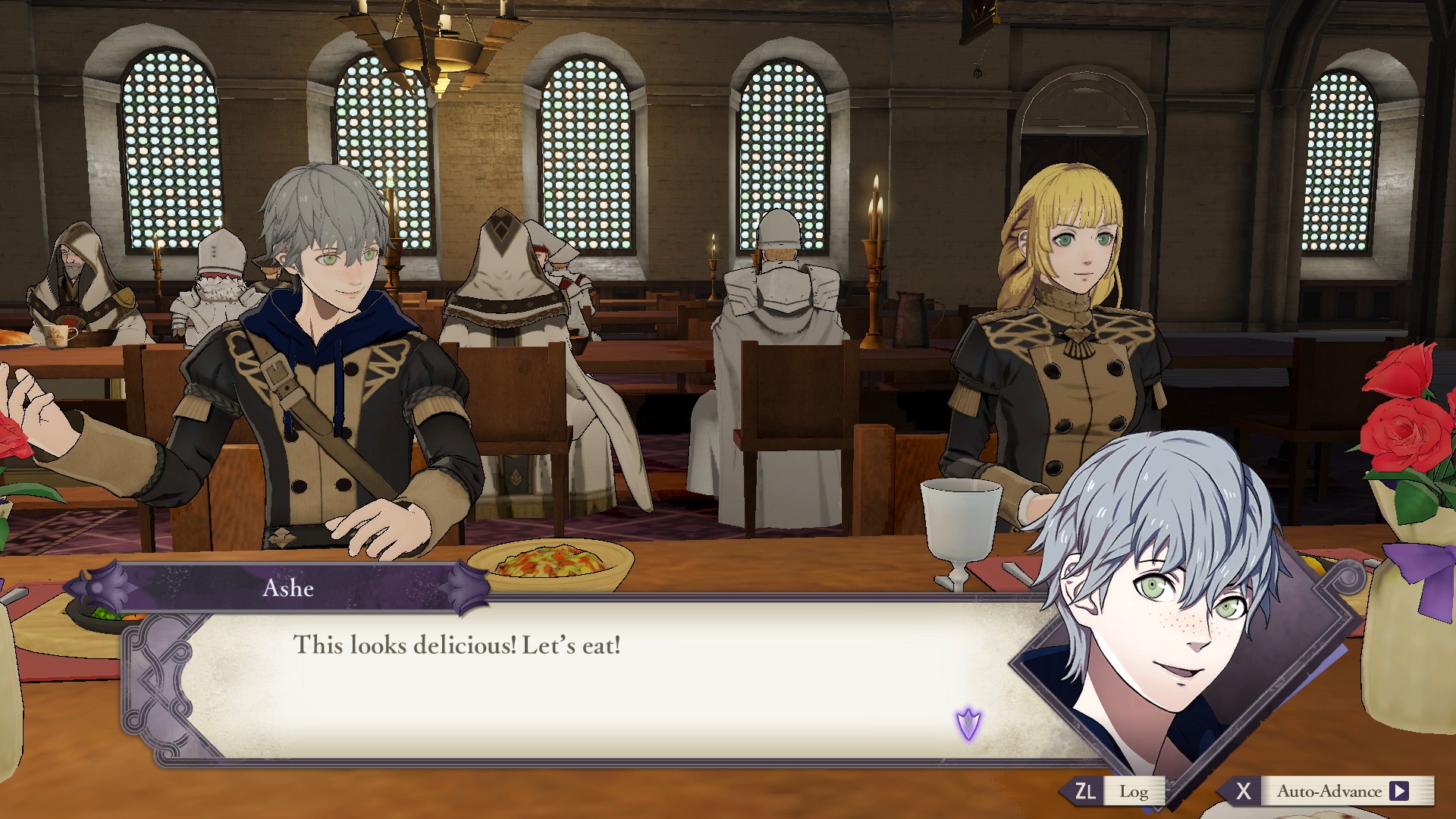
The goal for these young men and women seems settled: become a noble, a hero, a literal knight in shining armor. It’s a task undertaken out of filial piety, a property that, when you look past the fourth wall, these lords and ladies share with most of their modern-day Asian audiences. The task then isn’t so much to completely break away from everything your parents want from you, but to find a version of yourself that can merge your own desires with what’s expected of you. That’s exactly what these characters struggle with—they want to be good, pious children, but they’re not sure how. All they’ve come to know are the images of their parents as presented to the public, important politicians for whom their children came second to their status.
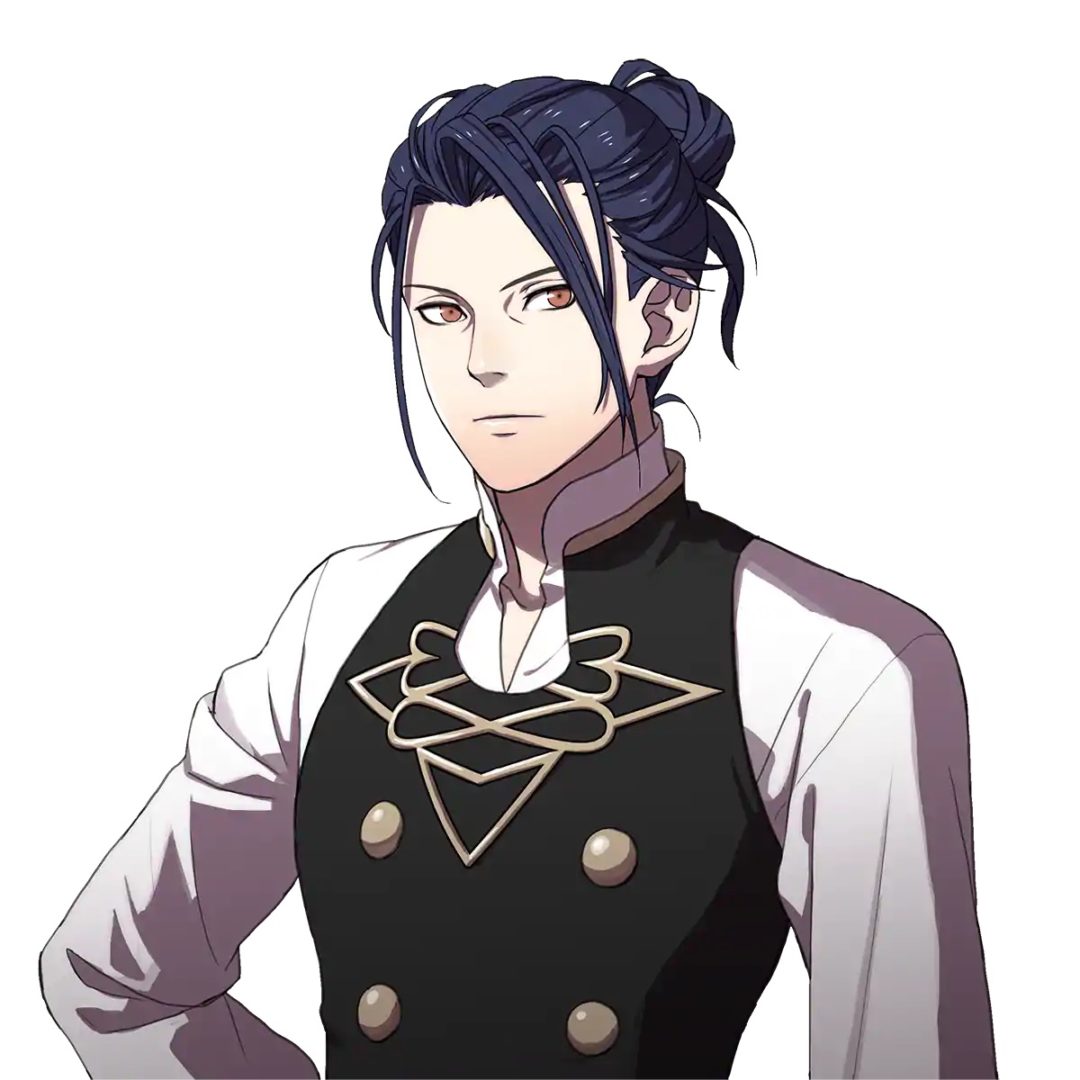
Nowhere is this clearer than in the stories of Felix and Sylvain, both of whom navigate their relationships with their parents through their siblings. Felix’s brother Glenn was the perfect knight, devoted to his lord Prince Dimitri to the point he died protecting him. Felix’s father Rodrigue paints this as the ultimate act of chivalry, while Felix views it as a senseless death that could have been avoided. He blames Dimitri, especially when he realizes his friend doesn’t make the most of the life his brother’s death granted him. He also withdraws from his father, whose disappointment in Felix’s unwillingness to make a similar sacrifice leads him to say it would’ve been better if Felix had died instead of his brother. There’s no doubt Rodrigue is a terrible father, but Felix ends up doing exactly what’s expected of him by going to Garreg Mach. He’s internalized that his job is to save others, to become a true knight just like his brother was. He begins to devote all of his time to training, seeing that if his destiny is to fight for others, he has to make sure to not die for his duty, simply by being as strong as possible. He never ends up believing in sacrifice for the sake of it, but if he makes up with Dimitri through his support conversations, he devotes himself to his king all the same. Endings without a support see him abandon his title but dedicate himself to the safety of others as a mercenary.
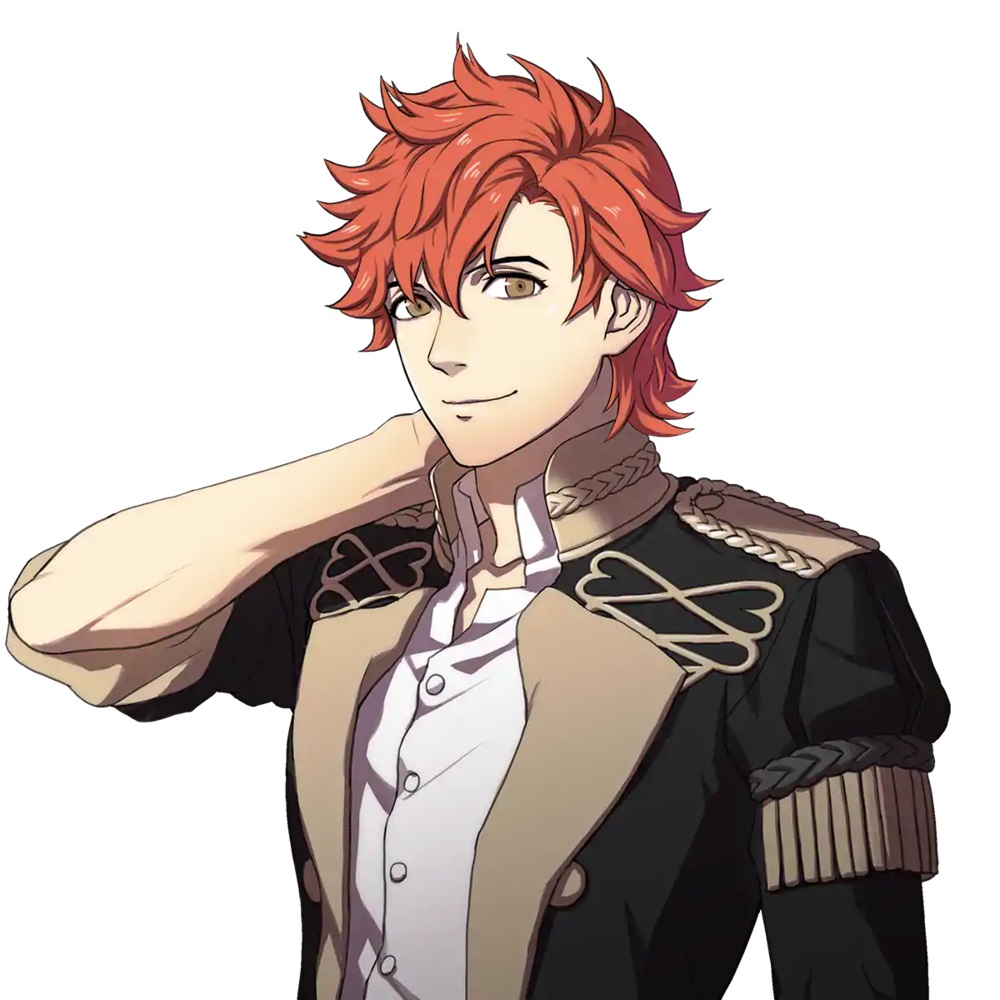
Sylvain, meanwhile, is the other side to Felix’s coin. He is the “better brother,” born with a crest and thus able to wield his family’s Heroes’ Relic. Sylvain finds the expectations thus placed on him to be suffocating, and starts to rebel against crests and traditions of noble society. However, Sylvain absolutely accepts his noble title, ostensibly to convince people that the current societal model needs to be mildly updated. Note that Sylvain in no way means to revolutionize the model that made him so unhappy, merely to find his place within it. He goes about fixing his own trauma by becoming a better parent himself, but just like Felix, he mostly leaves the systemic root of his problems untouched.
By comparison, Edelgard is out to cause great upheaval, due to the torture she had to withstand as part of a political coup. With her father rendered mentally and physically weak as result of said coup and her uncle—her surrogate father figure—killed and replaced by an impostor, Edelgard’s family fits another type of the absentee parent trope: dead or completely incapable parents. Edelgard’s father was unable to fulfill his role as guardian, literally too feeble to stop his political opponents from experimenting on his daughter.
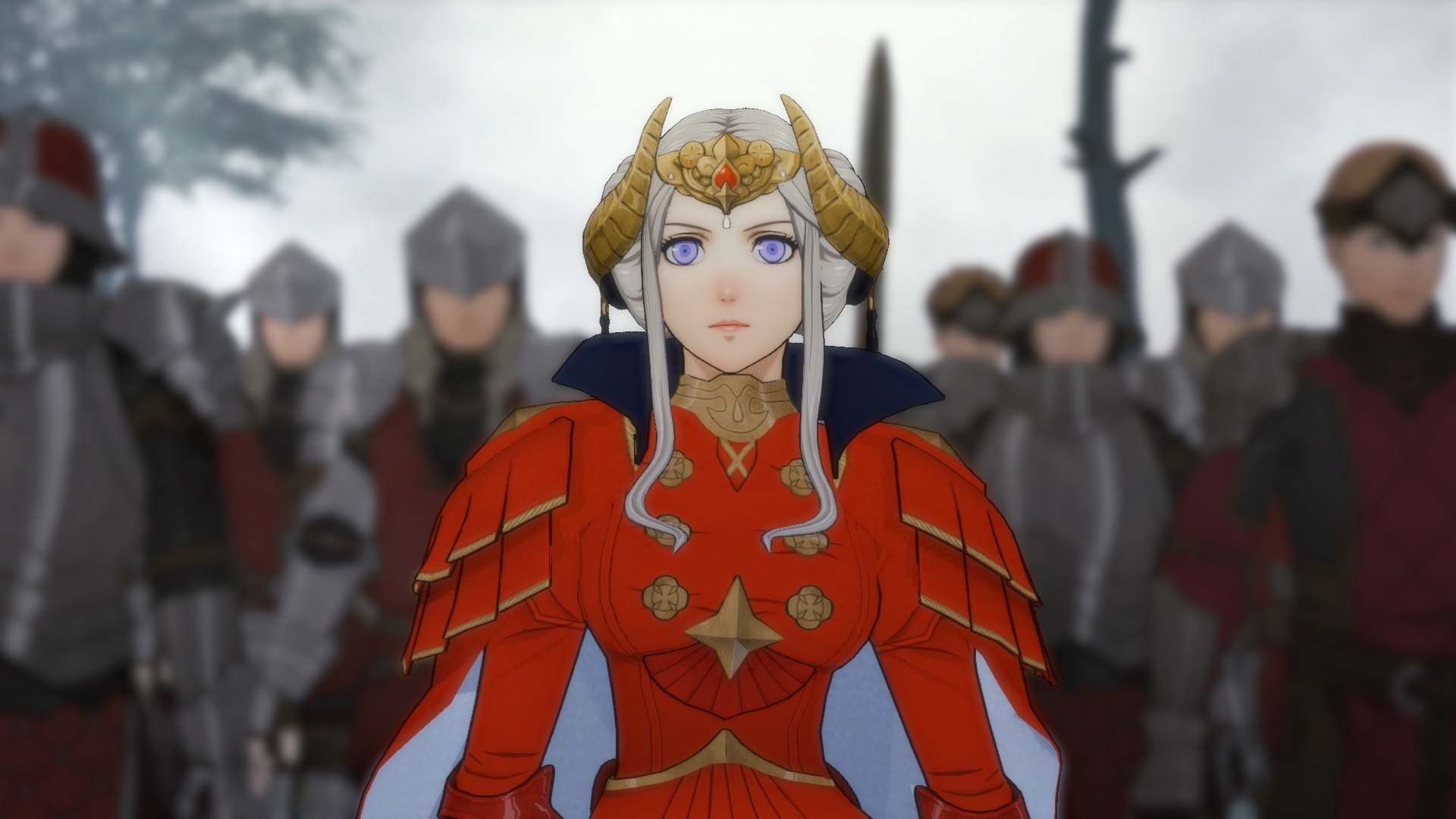
Orphans are surprisingly common in coming-of-age adventures, in order to emphasize that the young protagonist now has to raise themselves by undertaking a journey. Traditionally, such games don’t overly focus on the parent in order to not make it seem like a task marred by trauma and doomed to failure. In Final Fantasy XV, for instance, the only scene between Noctis and his father doesn’t convey any tenderness between the two, and when the king eventually dies, Noctis is already on his journey.
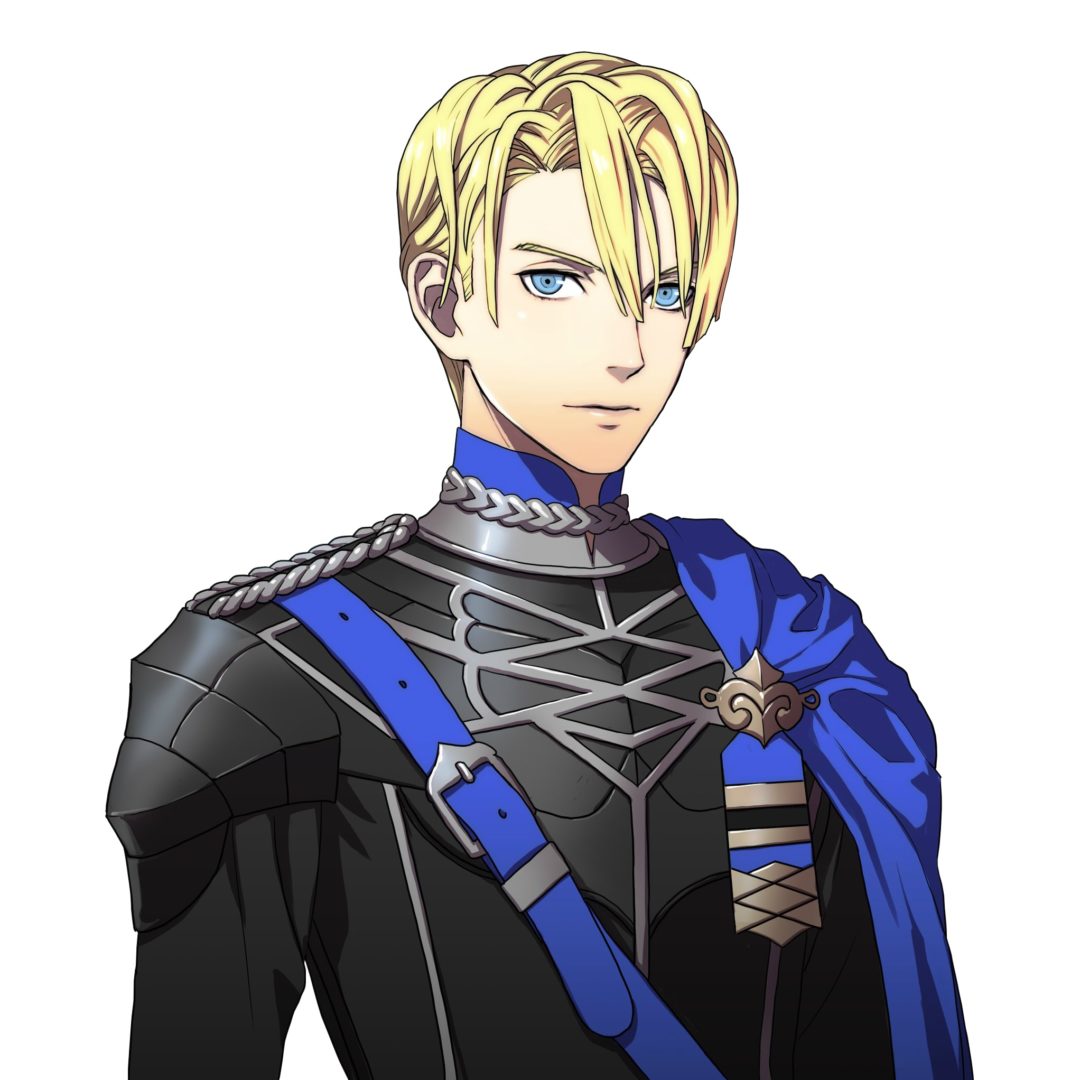
Fire Emblem: Three Houses notably makes its characters face their trauma head on. Edelgard— and even more so Dimitri, whose entire family was killed in the Tragedy of Duscur—react to what’s been done to their parents and by extension themselves with mental collapse. You may argue that Edelgard holds it together better than Dimitri, who gets so singularly focused on revenge he starts hearing the voices of his family members asking him to bring him Edelgard’s head, but declaring war on an entire continent to supplant the dominant social system is hardly the more level-headed option. The Crimson Flower route is also unique in that it allows for patricide: Annette and Felix will have to face their fathers in battle, while Ferdinand and Hubert at the very least relieve their fathers from their duties, with imprisonment and murder implied in these latter cases.
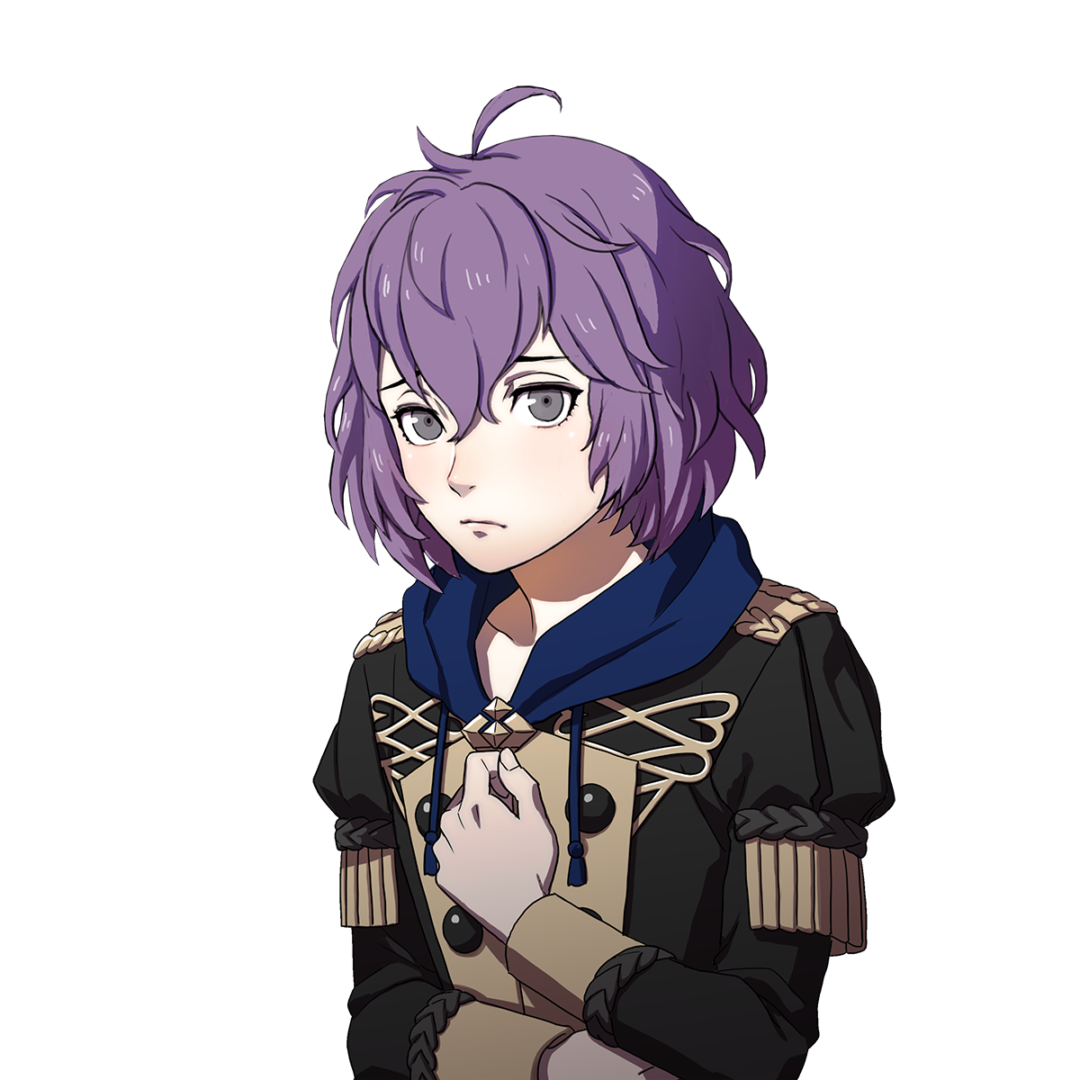
There are those who recognize their parents as the root of their problems and who choose to address this by forging their own path, namely Bernadetta, Mercedes, and Ingrid. Bernadetta has been terrorized by her father about her responsibilities as a noble to the point that she’s become an anxious shut-in. Through the player’s support and several support conversations with classmates, she is eventually able to practice self-love; while she remains withdrawn, she’s able to talk about this experience and find forgiveness. With a guardian obsessed with crests and money, Mercedes chooses the path of spirituality for herself and devotes herself to others via the church, and Ingrid is the classic tomboy who would rather become a knight than marry a noble for his money, so that’s exactly what she does.
What’s interesting about nearly every character in Three Houses is that the pressure of expectations sets each of them on a fixed path that they follow through to the end with almost no intervention by the player. Games that employ similar social systems, such as visual novels, usually emphasize the role of the player as a catalyst for positive change in other characters’ lives. Sure, dispense enough presents and spend enough time with your students in Three Houses and they’re bound to love you—at least enough to open up and tell you their stories—but your only role is to support them in what they’ve already set out to do. Additionally, during Paralogue battles, you’re stuck in the Fódlan equivalent of lending your child your car keys: “Hey Professor, I need a few battalions to solve one of my personal problems, will you help?”
This mostly respectful distance is due to Three Houses’ professor–student relationship once again is likely based on the ideal relationship between teachers and students in Japan. In Japan, teachers take over children’s upbringing from parents. The task of teaching children about right and wrong, in Western society the responsibility of parents themselves, in Japan falls upon teachers, who often spend more time around their students than parents do. The deep understanding that develops between teachers and students also often leads to a Japanese version of the “hot for teacher” trope, in which students and teachers start an illicit relationship. (Although in Three Houses, at least, every character is well of age.) As a Garreg Mach professor, you’re not there to further enforce the rules set by disapproving parents. Your role is to be supportive of your charges in their pursuits, to give them exactly what their parents can’t provide. If a character changes their behavior, it’s more often due to them butting heads with another teen. As in most coming-of-age media, young people also undergo character development influenced mainly by each other.
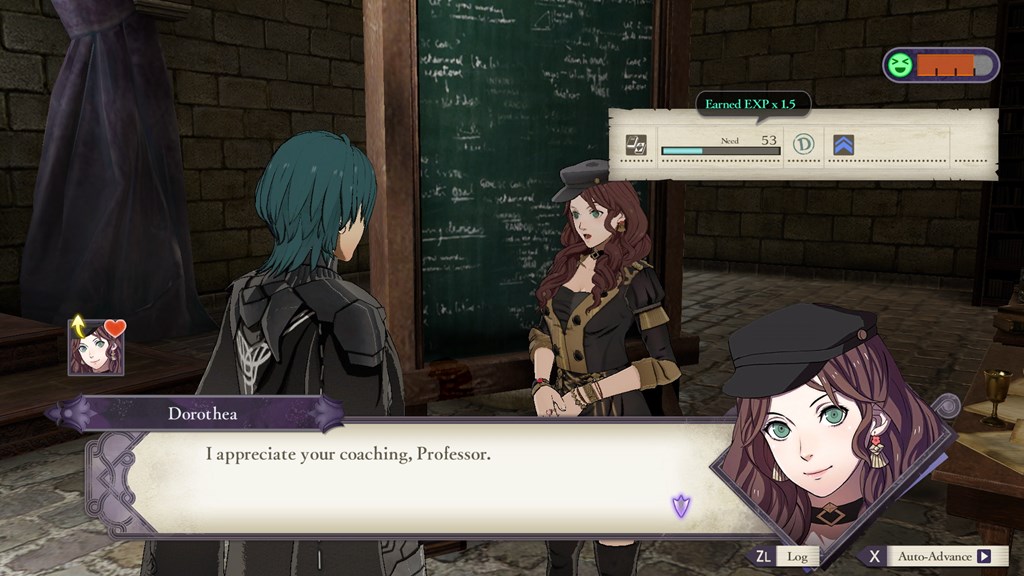
However, certain characters whose families have been killed or suffered indignities come out seemingly fine. These are characters who had to mature quickly but grew with their new responsibilities. During the events of the game, they accept these roles without complaint, sometimes even eagerly so. Petra was brought to Fódlan from Dagda as a political hostage of the Empire, but all her captivity does is strengthen her wish to bring about unity between opposing countries. Dedue is one of the few remaining people of his country, most of them having been executed (presumably for killing the king of Faerghus during a war), but he devotes himself to Dimitri, the first person who doesn’t meet him with racism. Ashe and Raphael have each become surrogate parents to their siblings after the death of their parents, but they just approach their lot in life with positivity. If Three Houses has one failing, it’s that the level-headed characters are given very few opportunities to share these experiences with their traumatized friends in order to help them with their problems.
No matter how a character in Fire Emblem: Three Houses reacts to the responsibilities and burdens placed on its characters by absent parents, it never buys into the idea that absent parents lead to liberation or easy independence. Instead, in part due to its politicized setting, it depicts parents as ever-present, their influence either something to give in to or to actively oppose.
All images: Fire Emblem: Three Houses, Nintendo
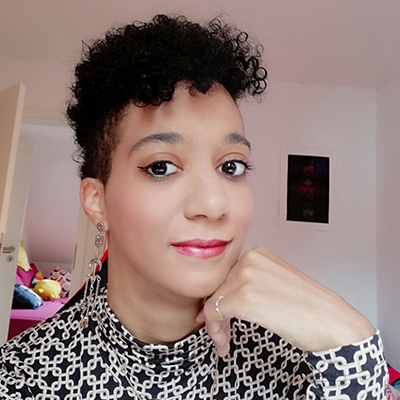
Malindy Hetfeld is a full-time freelance game critic who has written for Eurogamer, PC Gamer, Rock Paper Shotgun and more. Within games and beyond she is particularly interested in Japanese culture and society, narrative conventions, music and art design. Say hi at @yourkyotowife on Twitter.